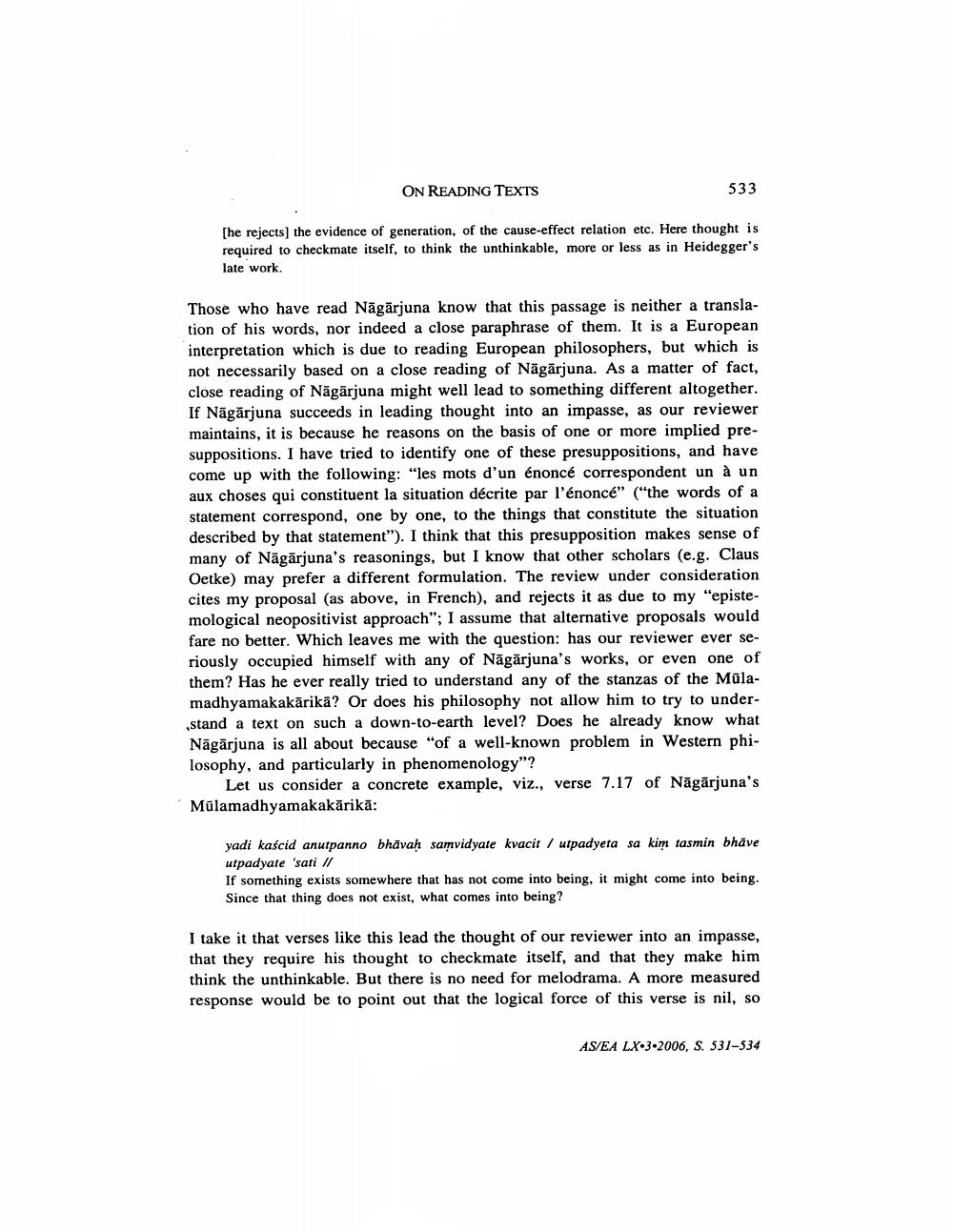________________
ON READING TEXTS
533
[he rejects) the evidence of generation, of the cause-effect relation etc. Here thought is required to checkmate itself, to think the unthinkable, more or less as in Heidegger's late work.
Those who have read Nāgārjuna know that this passage is neither a translation of his words, nor indeed a close paraphrase of them. It is a European interpretation which is due to reading European philosophers, but which is not necessarily based on a close reading of Nāgārjuna. As a matter of fact, close reading of Nāgārjuna might well lead to something different altogether. If Nāgārjuna succeeds in leading thought into an impasse, as our reviewer maintains, it is because he reasons on the basis of one or more implied presuppositions. I have tried to identify one of these presuppositions, and have come up with the following: "les mots d'un énoncé correspondent un à un aux choses qui constituent la situation décrite par l'énoncé" ("the words of a statement correspond, one by one, to the things that constitute the situation described by that statement"). I think that this presupposition makes sense of many of Nāgārjuna's reasonings, but I know that other scholars (e.g. Claus Oetke) may prefer a different formulation. The review under consideration cites my proposal (as above, in French), and rejects it as due to my "epistemological neopositivist approach"; I assume that alternative proposals would fare no better. Which leaves me with the question: has our reviewer ever seriously occupied himself with any of Nāgārjuna's works, or even one of them? Has he ever really tried to understand any of the stanzas of the Mulamadhyamakakārikā? Or does his philosophy not allow him to try to understand a text on such a down-to-earth level? Does he already know what Nāgārjuna is all about because "of a well-known problem in Western philosophy, and particularly in phenomenology"?
Let us consider a concrete example, viz., verse 7.17 of Nāgārjuna's Mulamadhyamakakārikā:
yadi kaścid anutpanno bhāvah samvidyate kvacit / utpadyeta sa kim tasmin bhāve utpadyate 'sati // If something exists somewhere that has not come into being, it might come into being. Since that thing does not exist, what comes into being?
I take it that verses like this lead the thought of our reviewer into an impasse, that they require his thought to checkmate itself, and that they make him think the unthinkable. But there is no need for melodrama. A more measured response would be to point out that the logical force of this verse is nil, so
AS/EA LX 3.2006, S. 531-534




